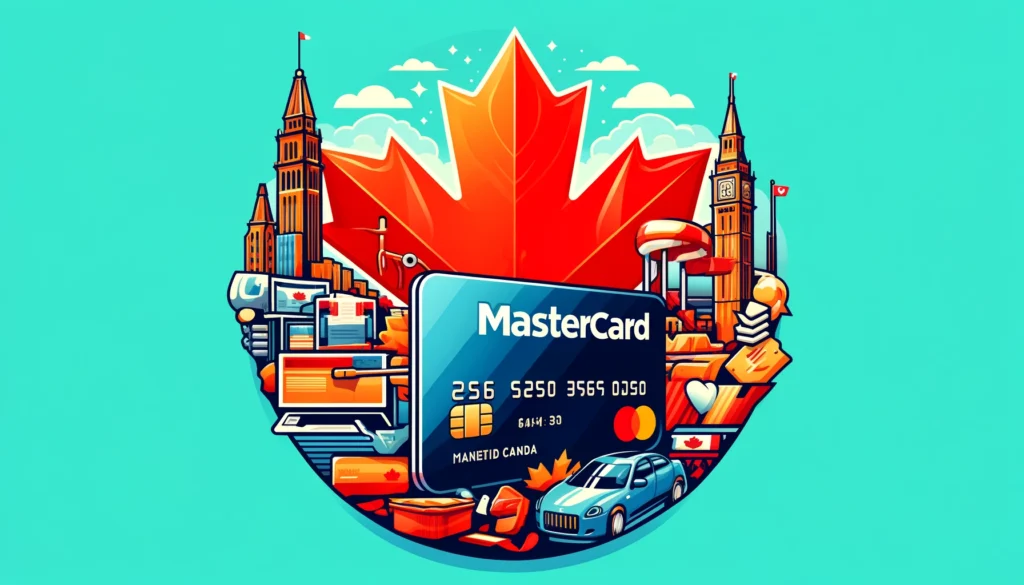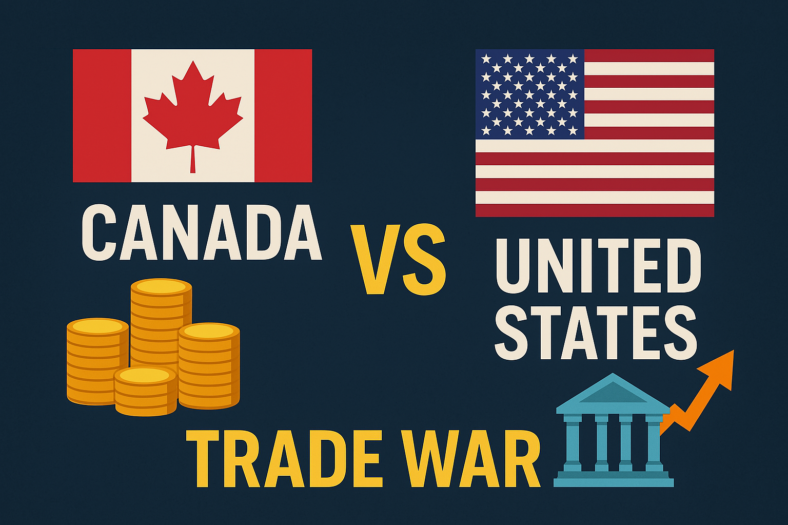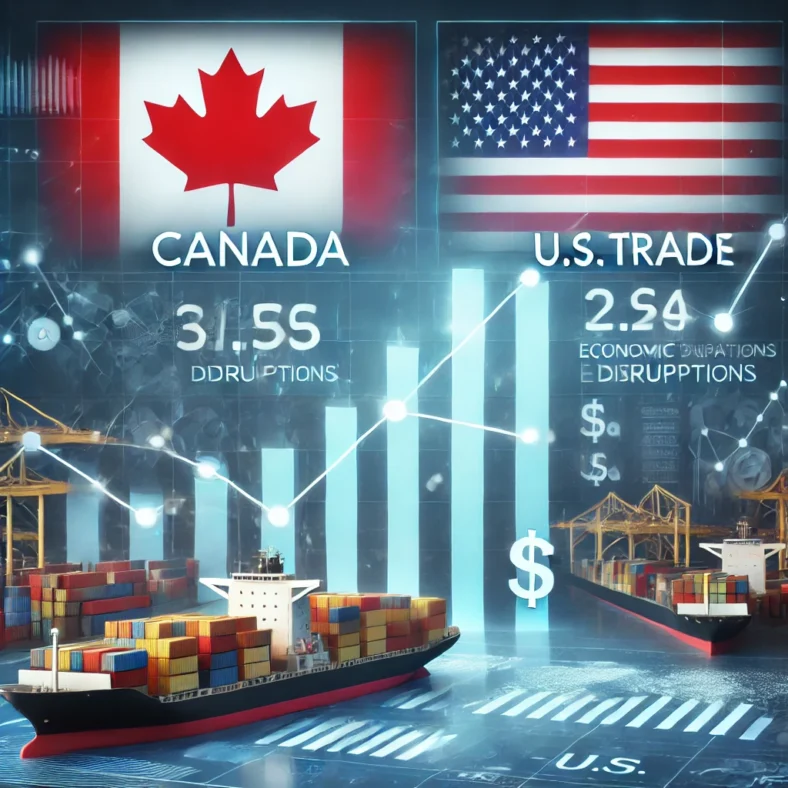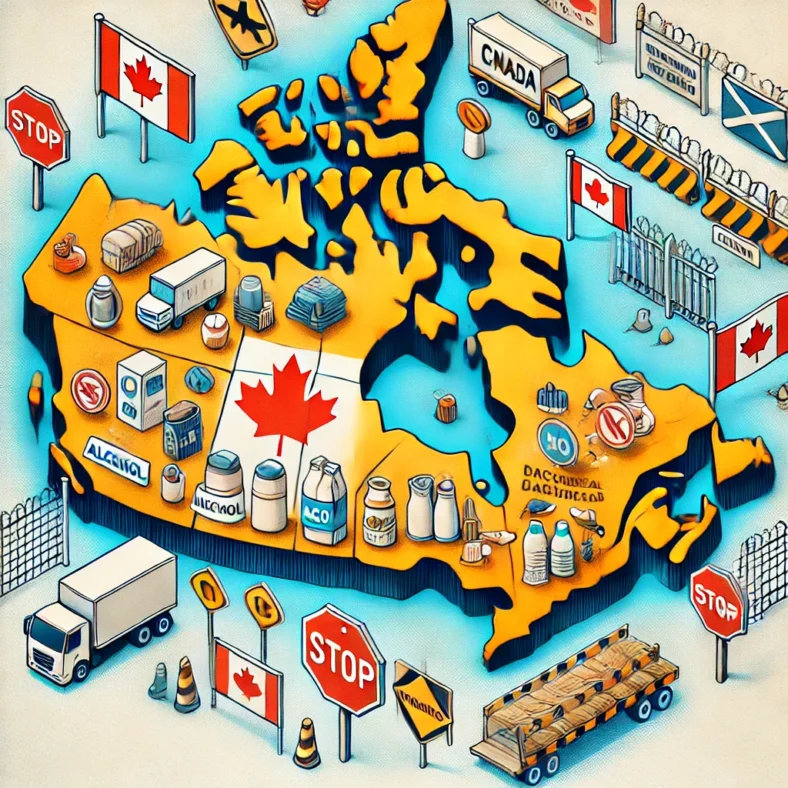Best Mastercard Credit Cards in Canada - Our Top Picks
| Compare | Ratestead Rating | Annual Fee | Annual Rewards | Welcome Bonus | Learn More |
|---|
| APPLY NOW | /10 |
Who are Mastercard and how do their credit cards work?
Mastercard is a global financial services corporation that operates as a payment network, facilitating transactions between merchants and cardholders. Founded in 1966, Mastercard has grown to become one of the world’s largest payment networks, connecting millions of merchants and consumers worldwide.
At its core, Mastercard provides the infrastructure and technology that enables electronic payments to occur securely and efficiently. When you use a Mastercard credit card to make a purchase, the transaction flows through a network that verifies the cardholder’s identity, authorizes the transaction amount, and transfers funds from the cardholder’s account to the merchant’s account.
Here’s a breakdown of how Mastercard credit cards work:
Issuing Banks: Mastercard credit cards are typically issued by banks or financial institutions that partner with Mastercard. These institutions issue credit cards to consumers and set the terms and conditions, such as interest rates, fees, and rewards programs.
Cardholder Usage: Once a consumer is approved for a Mastercard credit card, they can use it to make purchases at millions of merchants worldwide. Whether shopping online, in-store, or traveling abroad, Mastercard credit cards offer convenience and flexibility for everyday transactions.
Authorization Process: When a cardholder initiates a transaction, whether it’s a purchase at a retail store or an online payment, the merchant submits the transaction details to the payment network for authorization. Mastercard’s network verifies the cardholder’s identity and checks for available credit or funds to approve the transaction.
Payment Settlement: After the transaction is authorized, Mastercard facilitates the settlement process, transferring funds from the cardholder’s account to the merchant’s account. This process typically occurs within a few business days, depending on the merchant’s bank and the cardholder’s issuing bank.
Security Features: Mastercard employs various security measures to protect cardholders against fraud and unauthorized transactions. These may include EMV chip technology, tokenization, and advanced fraud detection algorithms to safeguard sensitive cardholder information.
Overall, Mastercard credit cards offer consumers a convenient and secure way to make purchases, access credit, and earn rewards. By leveraging Mastercard’s extensive network and innovative technology, cardholders can enjoy flexibility and peace of mind in their financial transactions.
Pros and cons of Mastercard credit cards
Pros:
Global Acceptance: One of the major advantages of Mastercard credit cards is their widespread acceptance at millions of merchants worldwide. Whether you’re traveling abroad or making purchases online, you can rely on Mastercard’s extensive network for convenient payment options.
Security Features: Mastercard prioritizes security and employs advanced technologies such as EMV chip technology, tokenization, and real-time fraud monitoring to protect cardholders against unauthorized transactions and identity theft.
Rewards Programs: Many Mastercard credit cards offer lucrative rewards programs, allowing cardholders to earn cash back, travel rewards, points, or miles on their purchases. These rewards can be redeemed for statement credits, travel bookings, gift cards, merchandise, and more, providing added value for cardholders.
Concierge Services: Some premium Mastercard credit cards provide access to concierge services, offering assistance with travel bookings, event tickets, dining reservations, and other personalized services to enhance the cardholder’s lifestyle.
Contactless Payments: Mastercard credit cards support contactless payments, allowing cardholders to tap their cards or mobile devices at compatible terminals for quick and secure transactions, eliminating the need to swipe or insert the card.
Cons:
Annual Fees: While some Mastercard credit cards offer no annual fees, others may come with annual fees, especially premium or rewards cards. Depending on the card’s features and benefits, the annual fee can add to the overall cost of card ownership.
Interest Rates: Like all credit cards, Mastercard credit cards may carry variable interest rates, which can be relatively high, especially for cardholders who carry balances from month to month. It’s essential for cardholders to understand their card’s APR (annual percentage rate) and pay off their balances in full to avoid accruing interest charges.
Foreign Transaction Fees: When using Mastercard credit cards for purchases made in foreign currencies or transactions processed outside of Canada, cardholders may incur foreign transaction fees, typically ranging from 2% to 3% of the transaction amount. These fees can add up, especially for frequent international travelers.
Credit Score Impact: Applying for a Mastercard credit card, especially if denied or if multiple applications are made within a short period, can temporarily lower the cardholder’s credit score due to hard inquiries. Additionally, mismanagement of credit card accounts, such as late payments or high credit utilization, can negatively impact the cardholder’s credit score.
Limited Acceptance: While Mastercard credit cards are widely accepted globally, there may still be instances where merchants or vendors may only accept specific card networks. It’s essential for cardholders to have a backup payment method, such as a Visa or American Express card, to ensure payment acceptance in such situations.
What types of Mastercard credit cards are available in Canada
In Canada, Mastercard offers a diverse range of credit cards tailored to meet the varied needs and preferences of consumers. These credit cards can be categorized into several main types, each offering unique features and benefits:
Cash Back Credit Cards: Cash back credit cards allow cardholders to earn a percentage of their purchases back in cash rewards. These rewards are typically credited to the cardholder’s account as statement credits or deposited into a linked bank account. Cash back credit cards may offer different cash back rates for various spending categories, such as groceries, gas, dining, and more.
Travel Rewards Credit Cards: Travel rewards credit cards are designed for frequent travelers and offer rewards such as points, miles, or travel credits that can be redeemed for flights, hotel stays, rental cars, and other travel-related expenses. These cards may also come with additional travel benefits, such as airport lounge access, travel insurance coverage, and complimentary upgrades.
Premium or Elite Credit Cards: Premium or elite credit cards cater to high-income individuals and offer exclusive perks and privileges, such as premium travel benefits, concierge services, luxury hotel stays, VIP airport lounge access, and elite status in loyalty programs. These cards often come with higher annual fees but provide significant value for frequent travelers and luxury enthusiasts.
Low Interest or Balance Transfer Credit Cards: Low interest or balance transfer credit cards appeal to cardholders looking to save money on interest charges or consolidate high-interest debt. These cards typically offer introductory promotional APRs (annual percentage rates) on balance transfers or purchases, allowing cardholders to pay down their balances at a lower interest rate for a specified period.
Student Credit Cards: Student credit cards are designed for college or university students who are new to credit or building their credit history. These cards often have lower credit limits and may offer features such as no annual fees, rewards for responsible spending habits, and educational resources to help students manage their finances responsibly.
Secured Credit Cards: Secured credit cards are suitable for individuals with limited or poor credit history and require a security deposit as collateral. These cards can help cardholders establish or rebuild their credit by responsibly using the card and making timely payments. As the cardholder demonstrates creditworthiness, they may qualify for unsecured credit cards with better terms and benefits.
Business Credit Cards: Business credit cards are designed for small business owners and entrepreneurs and offer features such as expense tracking tools, employee cards, business rewards programs, and spending limits tailored to business needs. These cards can help businesses manage cash flow, track expenses, and earn rewards on business-related purchases.
Overall, Mastercard offers a wide selection of credit cards in Canada, allowing consumers to choose the card that best fits their lifestyle, spending habits, and financial goals. Whether you’re looking for cash back rewards, travel benefits, low interest rates, or tools to build credit, there’s a Mastercard credit card available to suit your needs.
How to find and choose the best Mastercard credit cards in Canada
Finding and choosing the best Mastercard credit card in Canada requires careful consideration of your financial needs, spending habits, and lifestyle preferences. Here’s a step-by-step guide to help you navigate the process:
Assess Your Spending Habits and Financial Goals: Start by evaluating your typical monthly expenses, such as groceries, dining, gas, travel, and entertainment. Consider your financial goals, whether it’s earning cash back, accumulating travel rewards, or saving money on interest charges. Understanding your spending habits and priorities will guide your selection process.
Research Mastercard Credit Card Options: Explore the various Mastercard credit cards available in Canada by visiting the websites of major banks, credit card issuers, and financial comparison platforms. Take note of each card’s features, benefits, rewards programs, annual fees, interest rates, and any promotional offers or sign-up bonuses.
Compare Card Features and Benefits: Compare the features and benefits of different Mastercard credit cards to determine which ones align with your needs and preferences. Pay attention to factors such as cash back rates, rewards redemption options, travel benefits, insurance coverage, and additional perks like airport lounge access or concierge services.
Consider Annual Fees and Interest Rates: Evaluate the annual fees and interest rates associated with each Mastercard credit card option. While some cards may offer attractive rewards and benefits, they may come with higher annual fees or APRs (annual percentage rates). Determine whether the value of the card’s features outweighs the cost of ownership for your spending patterns.
Review Redemption Options and Flexibility: Look into the redemption options offered by each Mastercard credit card, whether it’s cash back, travel rewards, merchandise, gift cards, or statement credits. Consider the flexibility and ease of redeeming rewards, as well as any restrictions or blackout dates that may apply.
Check for Additional Perks and Protections: Explore any additional perks, protections, or insurance coverage provided by the Mastercard credit card, such as extended warranty protection, purchase protection, price protection, rental car insurance, and travel insurance benefits. These extra benefits can add value and peace of mind for cardholders.
Read Reviews and Customer Feedback: Take the time to read reviews and customer feedback on Mastercard credit cards from reputable sources, such as financial websites, forums, and social media platforms. Pay attention to both positive and negative experiences shared by other cardholders to gain insights into the card’s overall satisfaction and performance.
Apply for the Card: Once you’ve identified the best Mastercard credit card that meets your needs and preferences, proceed to the card issuer’s website to complete the online application process. Be prepared to provide personal information, financial details, and consent to a credit check as part of the application process.
Manage Your Credit Responsibly: After receiving approval for your Mastercard credit card, use it responsibly by making timely payments, staying within your credit limit, and avoiding unnecessary debt. Regularly monitor your account activity, review statements for accuracy, and take advantage of online banking tools to track your spending and manage your finances effectively.
By following these steps and conducting thorough research, you can find and choose the best Mastercard credit card in Canada that aligns with your financial goals and lifestyle preferences.
What are Common interest rates, fees and costs for Mastercard credit cards in Canada?
Interest Rates
The interest rates for Mastercard credit cards in Canada can vary depending on several factors, including the cardholder’s creditworthiness, the type of card, and the card issuer’s policies. Common interest rates for Mastercard credit cards typically fall within the following ranges:
Purchase APR (Annual Percentage Rate): The purchase APR represents the interest rate charged on outstanding balances carried from month to month on purchases made with the credit card. Purchase APRs for Mastercard credit cards in Canada may range from around 12% to 25%, with some premium or rewards cards offering lower introductory rates for a limited period.
Balance Transfer APR: Balance transfer APRs apply to balances transferred from other credit cards or loans to a Mastercard credit card. These rates may be similar to purchase APRs but can sometimes be lower, especially during promotional periods. Balance transfer APRs typically range from 0% to 5%, depending on the card issuer and promotional offers available.
Cash Advance APR: Cash advance APRs apply to cash advances obtained using the credit card, such as ATM withdrawals or cash equivalent transactions. Cash advance APRs are often higher than purchase APRs and may range from around 20% to 30% or more.
Fees and Costs
In addition to interest rates, Mastercard credit cards in Canada may come with various fees and costs that can impact the overall cost of card ownership. Common fees associated with Mastercard credit cards include:
Annual Fees: Many Mastercard credit cards charge annual fees, which can range from $0 for basic cards to $100 or more for premium or rewards cards with enhanced benefits and features.
Foreign Transaction Fees: Foreign transaction fees apply to purchases made in foreign currencies or transactions processed outside of Canada. These fees typically range from 2% to 3% of the transaction amount.
Balance Transfer Fees: Balance transfer fees are charged when transferring balances from other credit cards or loans to a Mastercard credit card. These fees are usually a percentage of the transferred balance, ranging from 1% to 5%, with a minimum fee of $5 to $10.
Cash Advance Fees: Cash advance fees apply to cash advances obtained using the credit card, such as ATM withdrawals or cash equivalent transactions. These fees are typically a percentage of the cash advance amount, ranging from 2% to 5%, with a minimum fee of $5 to $10.
Late Payment Fees: Late payment fees are charged when the cardholder fails to make the minimum payment by the due date specified on the credit card statement. These fees can range from $25 to $40, depending on the card issuer and provincial regulations.
Overlimit Fees: Overlimit fees may be charged if the cardholder exceeds their credit limit. However, Canadian regulations prohibit credit card issuers from charging overlimit fees on consumer credit cards issued after August 2010.
Returned Payment Fees: Returned payment fees are charged when a payment made to the credit card account is returned unpaid, such as due to insufficient funds or a declined transaction. These fees are typically around $25 to $40.
It’s essential for cardholders to review the terms and conditions of their Mastercard credit cards carefully to understand the applicable interest rates, fees, and costs associated with card usage. Additionally, cardholders can compare different credit card offers and consider their spending habits and financial goals to choose a card that offers the best value and benefits for their needs.
Alternatives to Mastercard credit cards
When considering credit card options, Mastercard isn’t the only choice available to consumers in Canada. Several alternatives exist, each with its own set of benefits and features. Here are some common alternatives to Mastercard credit cards:
Visa Credit Cards: Visa is another major payment network that competes with Mastercard globally. Visa credit cards offer similar acceptance and benefits, including rewards programs, travel perks, and security features. Many banks and financial institutions in Canada offer Visa credit cards, providing consumers with a wide selection of options to choose from.
American Express Credit Cards: American Express, also known as Amex, is renowned for its premium credit card offerings and exclusive perks. Amex cards often come with generous rewards programs, travel benefits, and premium services like airport lounge access and concierge services. While Amex may have slightly less acceptance compared to Visa and Mastercard, it’s still widely accepted at many merchants in Canada and abroad.
Discover Credit Cards: Discover is a lesser-known payment network in Canada but is popular in the United States. Discover credit cards typically offer cash back rewards, no annual fees, and competitive interest rates. However, Discover cards may have limited acceptance outside of the United States, making them less suitable for international travelers.
Store-Specific Credit Cards: Many retailers and stores offer their own branded credit cards, which can provide benefits such as discounts, rewards, and special financing options for purchases made at the respective stores. Examples include the Canadian Tire Triangle Mastercard, the PC Financial Mastercard, and the Costco Anywhere Visa Card by Citi.
Secured Credit Cards: Secured credit cards are an alternative for individuals with limited or poor credit history who may not qualify for traditional unsecured credit cards. Secured cards require a security deposit, which acts as collateral and determines the card’s credit limit. These cards help cardholders build or rebuild their credit by responsibly using the card and making timely payments.
Prepaid Debit Cards: Prepaid debit cards are another option for consumers who want the convenience of card payments without the risk of overspending or accruing debt. Prepaid cards are loaded with funds in advance and can be used for purchases wherever the card network (e.g., Visa or Mastercard) is accepted. However, prepaid cards do not typically offer credit-building benefits or rewards programs.
Debit Cards: While not credit cards, debit cards are linked directly to a bank account and can be used for purchases and ATM withdrawals. Debit cards offer convenience and security, allowing cardholders to access their funds without incurring debt or interest charges.
When choosing an alternative to Mastercard credit cards, it’s essential to consider factors such as acceptance, rewards programs, fees, interest rates, and additional benefits to find the option that best aligns with your financial needs and lifestyle preferences. Conducting thorough research and comparing different card options will help you make an informed decision and find the right credit card for your specific circumstances.
FAQs about the best Mastercard credit cards in Canada
The best Mastercard credit card for you depends on your individual preferences, spending habits, and financial goals. Some popular options include cash back cards like the Tangerine Money-Back Credit Card, travel rewards cards like the BMO World Elite Mastercard, and premium cards like the Scotiabank Passport Visa Infinite Card.
When choosing a Mastercard credit card, consider factors such as rewards programs, annual fees, interest rates, perks, and benefits. Evaluate your spending habits and priorities to determine which card aligns best with your needs and preferences.
Yes, many Mastercard credit cards in Canada offer rewards programs, allowing cardholders to earn cash back, travel rewards, points, or miles on their purchases. Rewards vary by card and may include bonus categories, sign-up bonuses, and redemption options like statement credits, travel bookings, merchandise, and gift cards.
Some Mastercard credit cards come with annual fees, especially premium or rewards cards with enhanced benefits and features. Annual fees can range from $0 for basic cards to $100 or more for elite cards. Consider the card’s benefits and value proposition to determine if the annual fee is justified for your spending habits.
Yes, many Mastercard credit cards offer travel benefits such as travel insurance coverage, airport lounge access, concierge services, and complimentary upgrades. Premium or travel-focused cards may provide additional perks like priority boarding, baggage insurance, and foreign transaction fee waivers for frequent travelers.
Interest rates for Mastercard credit cards in Canada vary depending on factors such as the cardholder’s creditworthiness, the type of card, and the card issuer’s policies. Purchase APRs typically range from around 12% to 25%, while balance transfer and cash advance APRs may be higher.
To apply for a Mastercard credit card, visit the website of the card issuer or financial institution offering the card. Complete the online application form with personal information, financial details, and consent to a credit check. Once approved, you’ll receive your Mastercard credit card in the mail, typically within a few weeks.
Yes, Mastercard credit cards are widely accepted internationally at millions of merchants and ATMs that display the Mastercard logo. You can use your Mastercard credit card for purchases, dining, travel, and cash withdrawals while traveling abroad. Just be aware of foreign transaction fees and currency conversion charges that may apply.
If your Mastercard credit card is lost or stolen, contact the card issuer immediately to report the incident and request a replacement card. The issuer will deactivate your old card and issue a new one with a new account number to prevent unauthorized use. Monitor your account for any fraudulent charges and follow any additional instructions provided by the issuer.
Yes, Mastercard credit cards may come with additional benefits and perks such as extended warranty protection, purchase protection, price protection, rental car insurance, roadside assistance, and identity theft resolution services. Review the card’s terms and conditions for details on available benefits and how to access them.
In conclusion, Mastercard credit cards offer a wide array of options for consumers in Canada, catering to diverse financial needs, spending habits, and lifestyle preferences. Whether you’re seeking cash back rewards, travel benefits, low interest rates, or premium perks, there’s a Mastercard credit card designed to suit your specific requirements.
Throughout this guide, we’ve explored the features, benefits, and considerations associated with Mastercard credit cards in Canada. From cash back cards that reward everyday purchases to travel rewards cards that elevate your journeys, Mastercard provides flexibility, security, and convenience for cardholders across the country.
When choosing the best Mastercard credit card for you, it’s essential to evaluate factors such as rewards programs, annual fees, interest rates, perks, and additional benefits. By understanding your spending habits and financial goals, you can select a card that maximizes value and aligns with your lifestyle.
Whether you’re a frequent traveler looking to earn miles, a savvy shopper seeking cash back rewards, or a business owner managing expenses, Mastercard offers a range of solutions to help you achieve your financial objectives.
As you embark on your credit card journey, remember to use your Mastercard credit card responsibly, make timely payments, and take advantage of the benefits and protections provided. By leveraging the power of Mastercard’s global network, innovative technology, and commitment to excellence, you can unlock new possibilities and enhance your financial well-being.
Thank you for joining us on this exploration of Mastercard credit cards in Canada. We hope this guide has provided valuable insights to help you make informed decisions and navigate the world of credit with confidence. Whether you’re embarking on new adventures, managing everyday expenses, or pursuing your dreams, Mastercard is here to support you every step of the way.




















